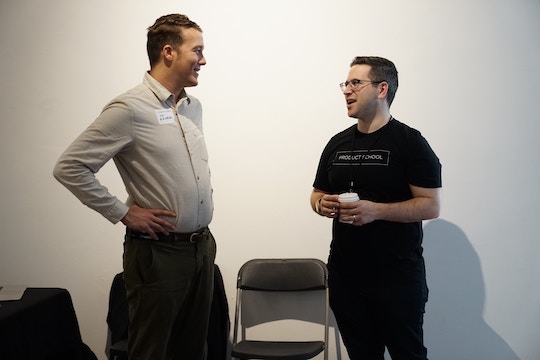Mapping Out Your Networking World

Networking is a learned skill built upon the personal values and attitudes inherent in all of us.
Networkers know the world is interconnected and that when they give their time, talents, and energy to help others satisfy needs and reach goals, they end up helping themselves. When networking, we are engaged in a win-win scenario.
It’s important to seek a diverse network. Don’t associate only with people who are like you. Consider making deliberate connects with:
- People from other cultures
- Those who are younger or older than you
- Members of the opposite gender
This will give you a broader reach, perspective, and impact.
All things being equal, people will do business with and refer business to those people they know, like and trust.
Bob Burg’s Golden Rule of Networking
Reputation
Your reputation is your calling card and your greatest asset. You build it by being your best and doing your best.
It takes time to establish a great reputation — maybe years. Conversely, a good reputation can be destroyed overnight. Be careful to maintain yours.
Others will naturally come to hear about your reputation through word-of-mouth — but you can also use testimonials and formal recommendations to make sure that your reputation is coming across strongly.
EXERCISE
Write down five skills and two major strengths for which you are known in your professional world.
Responsibility
In today’s fast-paced global economy, the ability to take charge, show initiative, make choices, and answer for one’s conduct are keys to leading a rewarding personal and professional life. Networkers understand that actions affect outcomes and have learned to deliver what they promise. It is always better to over-deliver. People will be impressed if you can exceed expectations. If you are known for bringing a little something extra, your networks will remember.
EXERCISE
Do you always deliver on your professional and personal promises? Write down at least one way in which you could improve in this area.
Relationships
Networkers understand the importance of becoming acquainted with people for who they are, not only for what they do. Establishing a sincere connection between any two people is the foundation of successful networking. Relationship skills can be learned and improved with conscious effort. Even if your technical capabilities are exceptional, your ability to develop strong relationships is still crucial.
EXERCISE
How easy is it for you to develop professional and personal relationships? How could your strengths in one field translate into the other?
Rapport
Rapport is based on having a genuine interest in learning about others and their world. Taking the time to learn about the needs of others provides you with an understanding of the common ground shared by you and others. You can establish rapport by:
- Joining a group, whether the Chamber of Commerce, a networking group, a fitness group, a golf club, or a professional society. Groups share common interests, which increases rapport.
- Doing your Homework before or after an event. Research people online and find out what interests you have in common.
- Remembering names and specific things people said. What did they say that was interesting, curious, or clever?
- Introduce Yourself! Simply walk over to anyone who looks alone and anxious about networking, and welcome them.
- Just smiling at people makes you attractive and welcoming.
EXERCISE
What are some of your best rapport-creating strategies? How could you take these further?
Research
If you keep up on the world around you and current trends, others will seek you out as a knowledgeable resource. Networkers practice professional due diligence. They do their homework because the more they know, the better prepared they will be.
As well as doing your homework, it is important to be prepared to share it. Don’t view the knowledge that you’ve gained as something “secret” that you should keep from potential competitors. See it as a valuable resource that can establish you as an expert.
EXERCISE
What do you do – or what could you start doing – on a daily or weekly basis to increase your own value as a networking resource?



